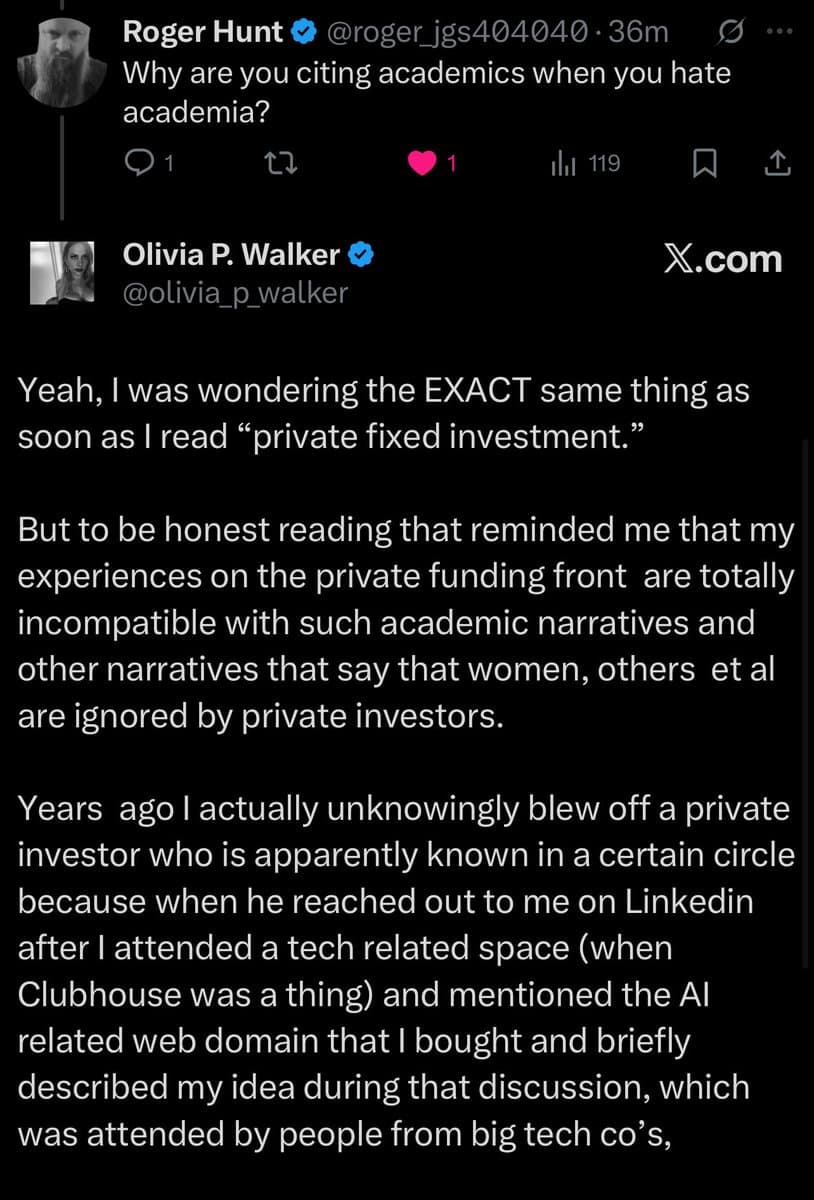Academic Experts Debate "Danger" of Challenging Established Consensus

A recent social media post by Olivia P. Walker has highlighted an escalating debate within academia regarding the perceived "danger" of challenging established scientific consensus. Walker's tweet points to peer-reviewed literature where some academic experts are reportedly publishing concerns that the questioning of "academic groupthink" or consensus poses a threat.
"What’s funny about this is that in the peer reviewed academic literature now there are academic experts publishing about how they believe it is 'dangerous' that academic groupthink ('consensus') is being challenged," Olivia P. Walker stated in her tweet. She further described the current moment as "fascinating and unprecedented."
This sentiment reflects a growing discussion about the role of consensus in scientific progress. While some argue that challenging expert consensus, especially by non-experts or those outside a specific field, can be "rarely wise" and potentially dangerous due to misinformation, others contend that an over-reliance on consensus can stifle innovation and critical evaluation. An article by the American Enterprise Institute, for instance, warns against the "weaponization of scientific consensus," suggesting that the notion of "consensus-as-truth" can impede understanding and lead to the suppression of dissenting views.
The Skeptic magazine further elaborated on this dynamic, noting that scientific fields often have inherent incentives to uphold existing consensus, which can discourage the publication of novel theoretical perspectives or data that challenge established ideas. This environment, it argues, could lead to an "emperor-has-no-clothes situation" where legitimate questions are suppressed. Similarly, a publication in PMC NCBI criticized "Opinion-Based Recommendations" and the "Tyranny of Experts," highlighting that consensus can be "somewhat artificial and may mask important and legitimate divergences in opinions on unsettled matters."
Real-world examples illustrate this tension. Recent research, as reported by The New York Times, has begun to challenge long-held assumptions about Attention-Deficit/Hyperactivity Disorder (ADHD) and its treatment. Experts are questioning the traditional medical model, the long-term efficacy of stimulant medications, and the very definition of the disorder, suggesting that environmental factors play a more significant role than previously acknowledged. This re-evaluation demonstrates how even well-established scientific understandings can be subject to rigorous challenge and evolution.